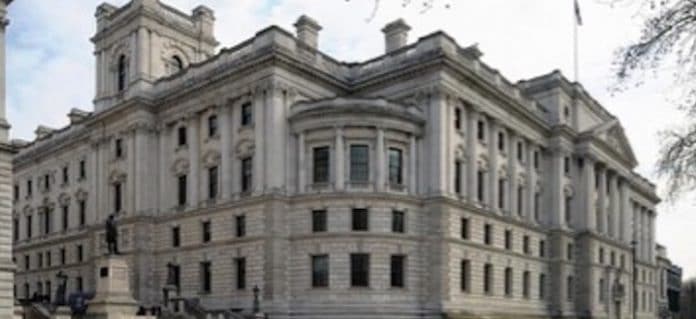Banks are to get the promised assurances over the legal and regulatory framework around new small business loans, the government has assured them.
The Treasury has been involved in intensive talks with banks over the final details of the so-called bounce-back scheme with just four days until launch.
Under the scheme, banks will offer interest and payment-free loans of up to £50,000 to SMEs with 100 per cent Government guarantees.

Chancellor Rishi Sunak intended it to address the problems with the larger Coronavirus Business Interruption Loan Scheme (CBILS), which only has 80 per cent guarantees and tougher conditions to access.
But industry executives are seeking clarity over how to act if the scheme results in high levels of default or fraud.
The Government has already admitted it is expecting a surge in applications when it opens on Monday. Stephen Barclay, Chief Secretary to the Treasury, told MPs he also expects to see some companies approved for loans under CBILS to switch to the “bounce back” scheme.
He said: “Demand will be high, not least because the majority of Cbils applications were for sums below the £50,000 that the Cbils will cover.”
Lenders which use the scheme are those accredited by the British Business Bank currently able to to lend through CBILS. These are not just limited to the High Street names, but include several of the new alternative lenders such as Starling Bank, Funding Circle, and Paragon Bank.
It is not clear at this stage who will be taking part. Starling has already indicated it will while some others are either undecided or have simply decided not to participate.
One concern among banks is that they will be blamed for lending to businesses who might not be able to afford to repay
Some senior bankers have questioned whether all providers will be set up to meet demand in time, although the biggest lenders are confident that they will be.
A Treasury official yesterday confirmed that “all of the main lenders” have told The chancellor “they will be able to operate on Monday.”
The new loans will have lighter checks on borrowers, something the government hopes will mean they can receive money within 24 hours.
One concern among banks is that they will be blamed for lending to businesses who might not end up being able to afford to repay, something we highlighted here yesterday.
They are also concerned about the risk of fraud given the lack of intensive checks.
Alejandro Worthington, partner in the corporate recovery and insolvency team at JMW Solicitors, points out that, as of Monday, “no applications should fail as there will be no viability test and no limit on turnover” which brings with it issues.
“There has to be a concern that the absence of viability testing will mean that desperate, unviable businesses will apply for and obtain such loans in circumstances where that business has little or no prospect of repaying such loan, leading to the prospect of significant defaults which are ultimately paid for by the tax payer.
“Directors do need to ensure that they are satisfied that the business will be able to repay the loan once the business is allowed to operate following the relaxation of the ‘lockdown’.
“Otherwise, they could be criticised – and action could subsequently be taken against them – for taking out a loan which the business had no reasonable prospect of repaying, should that business ultimately fail.”
A letter of reassurance is expected to be sent to the industry, according to officials. A statutory instrument is also expected in parliament shortly.

